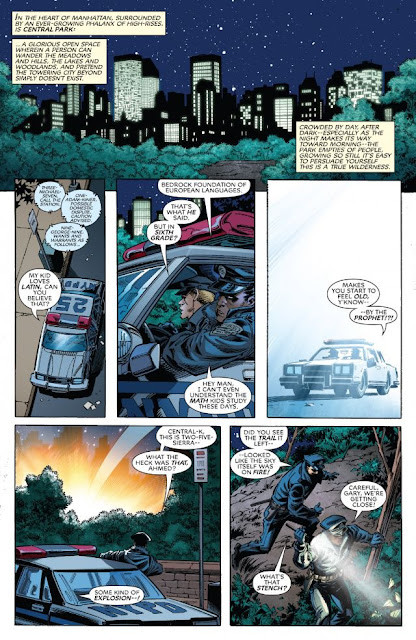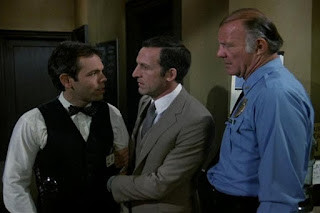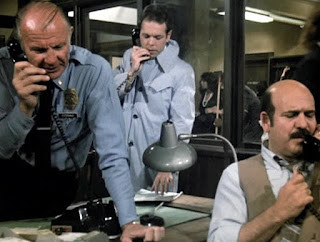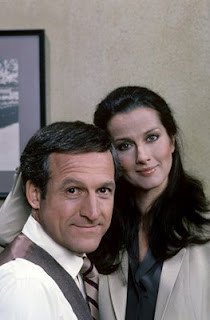When discussing the impactful work of David Milch in television, it’s impossible to overlook Hill Street Blues. More than just his inaugural TV writing endeavor, it marked his first significant role as an executive producer. Created by Steven Bochco and Michael Kozoll, the Hill Street Blues TV series shattered TV conventions, establishing a new benchmark for realism and serialized storytelling. Its commitment to episode-to-episode continuity and its radical departure from traditional studio camera setups, notably through the embrace of handheld cameras, set it apart. Despite its critical acclaim, it’s surprising to learn that Hill Street Blues often struggled in the ratings throughout its celebrated run on NBC. Although premiering before my time, its cultural resonance during my childhood was undeniable. The iconic sergeant’s morning roll call warning, “And remember, let’s be careful out there!” became a ubiquitous catchphrase of the era, permeating popular culture. Even the world of comics felt its influence, with Chris Claremont, a known fan, seemingly inspired to inject a greater sense of humanity into his portrayals of police officers, a trait that endures in his work.
 Hill Street Blues cast featuring Daniel J. Travanti as Captain Frank Furillo, Veronica Hamel as Joyce Davenport, and Michael Conrad as Sergeant Phil Esterhaus in a promotional image for the Hill Street Blues TV series.
Hill Street Blues cast featuring Daniel J. Travanti as Captain Frank Furillo, Veronica Hamel as Joyce Davenport, and Michael Conrad as Sergeant Phil Esterhaus in a promotional image for the Hill Street Blues TV series.
Before delving deeper, it’s worth noting the foundational inspirations behind Hill Street Blues. Two key sources stand out: Ed McBain’s acclaimed 87th Precinct novels and the raw, cinéma-vérité documentary The Police Tapes. McBain’s novels, beginning with Cop Hater in the 1950s, are credited as pioneering the police procedural genre. Meticulously researched, they depicted police work with unprecedented realism. While initially rumored to be displeased with the show’s heavy borrowing from his work, McBain reportedly warmed to the series later on. The Police Tapes, a 1977 documentary offering an unvarnished look at the NYPD through handheld cameras, demonstrably shaped the visual and narrative style of Hill Street Blues. The series was a deliberate effort to create a police drama that felt authentic and grounded, a stark contrast to the more stylized and action-oriented police shows like Starsky and Hutch that preceded it.
 Daniel J. Travanti as Captain Frank Furillo in a tense scene from Hill Street Blues, showcasing the realistic and gritty atmosphere of the groundbreaking police drama.
Daniel J. Travanti as Captain Frank Furillo in a tense scene from Hill Street Blues, showcasing the realistic and gritty atmosphere of the groundbreaking police drama.
At the heart of Hill Street Blues is Daniel J. Travanti’s portrayal of Captain Frank Furillo, a character embodying unwavering integrity. Furillo is deeply enmeshed in the daily operations of his precinct, a level of command involvement that subsequent Bochco-produced police dramas would rarely replicate. His personal life intertwines with his professional one through his relationship with Joyce Davenport, played by Veronica Hamel, who bears a striking resemblance to Lynda Carter’s Wonder Woman. Davenport, a public defender and later Furillo’s wife, often finds herself in professional opposition to him, even though Furillo is consistently depicted as a staunch defender of civil liberties. The series unfolds in a fictional city, an amalgamation of Chicago, Buffalo, and Pittsburgh. Despite this composite nature, the show often evokes a strong Chicago vibe, even featuring Chicago police patrol cars, leading many viewers, including myself, to initially assume a Chicago setting.
 Veronica Hamel and Daniel J. Travanti as Joyce Davenport and Captain Frank Furillo in Hill Street Blues, depicting the complex relationship between a public defender and a police captain.
Veronica Hamel and Daniel J. Travanti as Joyce Davenport and Captain Frank Furillo in Hill Street Blues, depicting the complex relationship between a public defender and a police captain.
The ensemble cast of Hill Street Blues is rich and memorable. Bruce Weitz’s Detective Mick Belker, a character as tenacious as Wolverine, earned Weitz Emmy nominations for Outstanding Supporting Actor for nearly every season. Sergeant Phil Freemason Esterhaus, played by Michael Conrad, the precinct’s paternal sergeant, delivered the show’s famous catchphrase and, somewhat controversially for modern sensibilities, was revealed to be dating a teenager in the pilot episode. Detectives J. D. LaRue (Kiel Martin) and Neal Washington (Taurean Blacque), the show’s younger, hipper detectives, seem to prefigure the Crockett and Tubbs duo of Miami Vice, a series created by a Hill Street Blues alumnus. Joe Spano portrayed Sergeant Henry Goldblume, who later became known for playing John Clark, Sr. in the later seasons of NYPD Blue. Hill Street Blues was populated with a vast array of characters, from patrol officers to high-ranking officials, and extended beyond law enforcement to include recurring criminals, prosecutors, and public defenders, creating a comprehensive portrayal of the urban legal system. The early episodes of Hill Street Blues clearly influenced the first season of NYPD Blue. However, NYPD Blue quickly moved away from many of these elements, particularly the focus on lawyers and uniform cops, concentrating instead on detectives and sidelining the legal aftermath of cases. NYPD Blue also abandoned car chases and developed more nuanced characterizations compared to the broader strokes used in Hill Street Blues, especially in its initial seasons. The influence of writers like David E. Kelley, mentored by Bochco, is evident in the character writing style of Hill Street Blues.
One of the most striking aspects of Hill Street Blues is its visual innovation. The documentary-style camerawork, particularly in the roll call scenes, and the scarcity of establishing shots were groundbreaking for television drama at the time. Unlike many contemporaries, and even its successor NYPD Blue, Hill Street Blues largely eschewed establishing shots and scenic montages to set the scene. Instead, scene changes were implied, demanding a more active engagement from the viewer. Similarly, the minimal use of musical score, more akin to contemporary serious dramas, contrasted sharply with the heavily scored NYPD Blue, which often relied on music to underscore emotional cues.
 Bruce Weitz as Detective Mick Belker in Hill Street Blues, a tough and memorable character known for his gruff demeanor and effectiveness in solving crimes.
Bruce Weitz as Detective Mick Belker in Hill Street Blues, a tough and memorable character known for his gruff demeanor and effectiveness in solving crimes.
Hill Street Blues reflects the sensibilities of a different era, particularly in its portrayal of minority characters and the casual use of language that would be considered highly offensive today. While avoiding explicit profanity beyond mild terms like “hell” or “damn,” the show’s language and depictions can feel dated when viewed through a modern lens. Despite these aspects, the episodes, especially from the first two seasons, remain compelling. While its innovations have become commonplace in subsequent TV dramas, and its 1980s fashions can be distracting, Hill Street Blues still holds up as engaging television. However, personally, Captain Frank Furillo isn’t my favorite character. Perhaps influenced by James McDaniel’s nuanced performance as Lieutenant Fancy in NYPD Blue, I find Furillo’s rigid, didactic persona less believable. He sometimes echoes the “sensitive male” archetype popularized by Alan Alda and satirized in Bloom County. The arrival of Dennis Franz as Detective Sal Benedetto in Season Three, coinciding with David Milch’s increasing involvement, marks another interesting chapter. The Benedetto storyline and Milch’s evolving contributions will be explored further in a future discussion.

